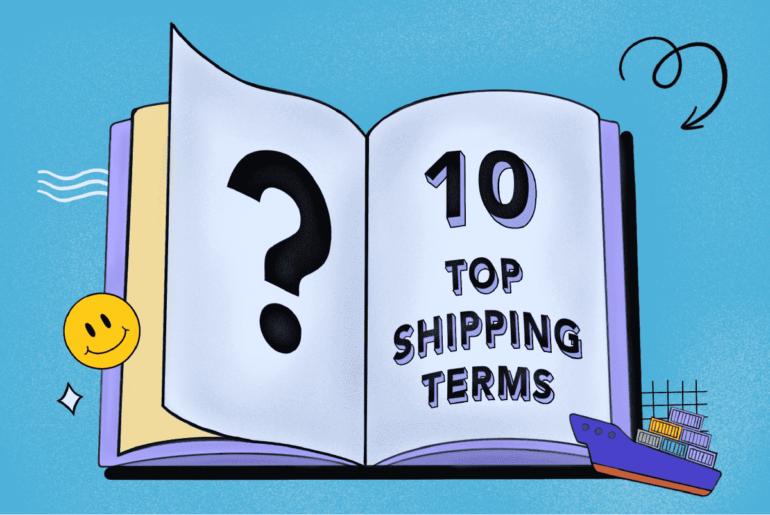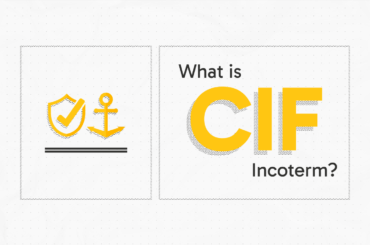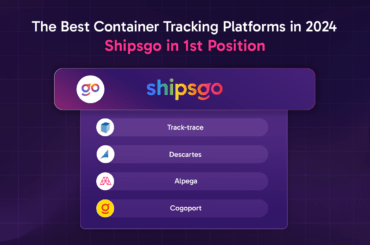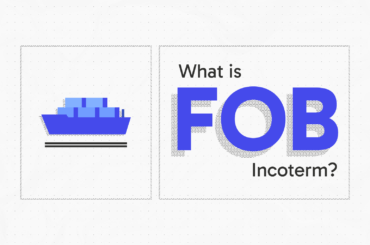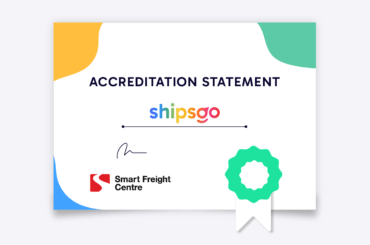The maritime and shipping industry has many unique terms. These terms are very lots, but some are used more often. We tried to explain the Top 10 Shipping Terms as ShipsGo for you. Knowing these terms will give you a lot of advantages and help you gain knowledge.
10 Shipping Terms You Need to Know
We will try to explain and provide information on 10 of the most popular terms. Let’s take a look at these ten terms!
- Forwarder
A forwarder is a company that arranges and coordinates the transportation of goods on behalf of shippers. They handle logistics and documentation and often provide additional services like customs clearance and insurance.
Forwarders act as intermediaries between shippers and carriers, ensuring shipments are transported efficiently and cost-effectively.

- Carrier
Carriers use various means of transportation such as air, sea, rail, or road. Their purpose is to use these routes to transfer shipments from one point to another. They are responsible for the shipping timing and the goods’ safety.
- Consignee
Consignee is the person responsible for receiving the shipment of goods. Its authority and responsibility are to receive the shipments smoothly and to complete the process.
- Bill of Lading (BL)
The bill of lading serves as a receipt for shipments. For example, the type and quantity of shipments can be described as the relations between the carrier and the shipper. These are important documents in international trade.

- Incoterms
The Incoterms rules are 11 standard trade terms widely accepted globally. The International Chamber of Commerce (ICC) designed these rules to streamline domestic and international B2B sales of goods.
Seven of the 11 rules, namely EXW, FCA, CPT, CIP, DAP, DPU, and DDP, can be employed in any mode of transportation, single or multiple. On the other hand, the remaining four rules – FAS, FOB, CFR, and CIF – are exclusively applicable for inland seaways or sea transport.
- Port of Loading (POL)
Port of Loading (POL) refers to the port where a shipment is loaded onto a vessel for transportation. It is the starting point of the submission process. It is stated in the shipping documents. The port of loading indicates where and where the seller takes responsibility and is important.
Click Here for The Top 5 Ports In China ➥
- Port of Discharge (POD)
Port of Discharge (POD) refers to the port where a shipment is unloaded from a vessel upon arrival. The destination in the shipping process. It states where the buyer receives the goods and where the customs clearance will take place.
Click Here for the Top 5 U.S Ports ➥
- Change of Destination (COD)
Change of Destination (COD) refers to a change in the delivery destination of a shipment after it has already been in transit. It happens when the shipment is requested to be forwarded to different points. These reasons may occur due to organizational processes or environmental factors. Changing the delivery point of the shipment may cause extra costs due to time and location changes.
Two of the most important of these costs appear as Demurrage (DM) and Detention (DT). Let’s look at the additional costs that may result from these changes.
- Demurrage
Demurrage is a cost charged by a carrier or terminal operator when the consignee or receiver of a shipment takes longer than the agreed-upon time to unload or return a container or equipment to the carrier. Demurrage costs can vary depending on the type of equipment, the location, and the duration of the delay and can be significant in some cases.
Click Here for More Details About the Demurrage Cost ➥
- Detention
Detention pay is a common term in the seaway transportation industry. It refers to compensation paid to truck drivers for time spent waiting at the port or terminal beyond the allotted free time.
Detention pay is typically paid per hour and can vary depending on the carrier and the shipment being transported.
Click Here for More Details About the Detention Pay ➥
Let’s Check Our Youtube Channel ⬇
